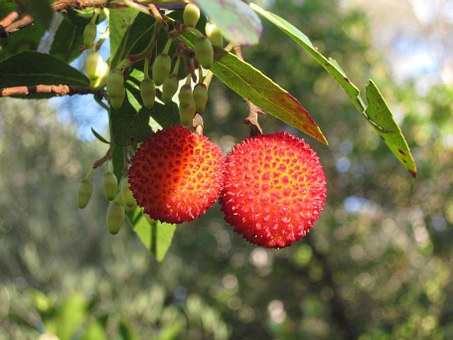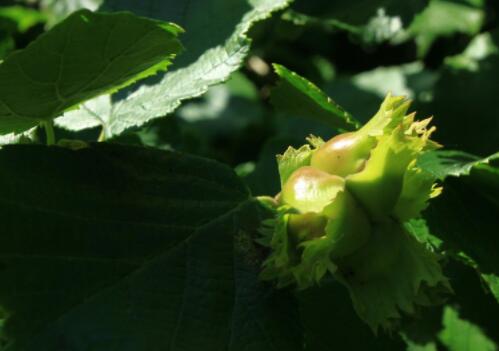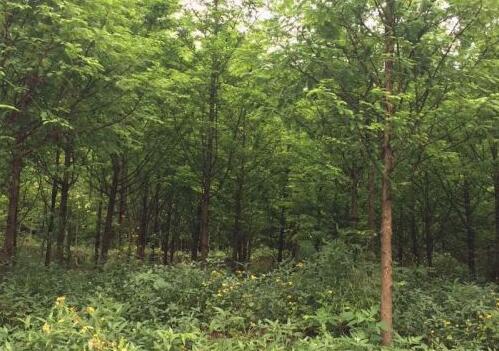"agate in the fruit" how much is the red bayberry seed per jin? Can I plant it? How do you plant it? When will it be ready?
Yangmei, also known as tree plum, Shengsheng plum, white plum, etc., is a common fruit in Hunan, Guangxi, Guizhou, East China and Guangdong in China. It is widely cultivated because of its high medicinal and edible value. Can you plant it? How? When will it be ready?

Seed Price:
The price of bayberry seeds is about 15~30 yuan a catty, but it varies according to the quality, variety, origin and market of seeds.
Can seeds be planted?
Yes, the best sowing time of bayberry seeds is February to April and September to October every year. The germination rate of bayberry seeds sown at these two times is the highest and grows best.
Seed planting techniques:
Sowing method:
The seeds of wild and cultivated Myrica rubra can be sown, and the germination rate of fresh seeds is the highest, but autumn sowing is often used in production. The specific steps are as follows:
1, nursery selection: bayberry nursery should choose convenient transportation, flat terrain, such as slope generally slope does not exceed 5° is appropriate, slope direction as far as possible to choose north or northeast, soil fertility, loose texture, deep soil layer sandy loam is good.
2. Seed collection: Myrica rubra seeds should be collected from mature trees with strong growth. The fruits should be spread out and piled up in places where sunlight is not direct. After 4~5 days of accumulation, the flesh should be washed and the floating shriveled seeds removed. The surface should be dried for use.
3. Soil preparation and fertilization: deep ploughing shall be carried out before planting of bayberry, and whitening shall be carried out after ploughing. 3000~5000 kg of pig manure, cattle manure or compost, 15~20 kg of calcium superphosphate and some plant ash shall be applied per mu. Drainage ditches shall be dug around paddy field, and drought prevention and flood control shall be paid attention to in mountainous areas.
4. Sowing method: Before sowing, soak the seeds in 0.1% potassium permanganate solution or 40% methyl thiophane 800 times solution for 10 minutes, spread the seeds evenly on the surface of the ridge, and gently press the seeds into the soil with a wooden board after sowing, and cover them with a layer of fine soil and then cover them with a layer of thin grass.
5, seedling management: bayberry is generally sown in late October, in January of the second year seed germination, in mid-February break ground emergence, after emergence should pay attention to temperature and humidity control, at the same time pay attention to prevent sunburn or catault disease, usually to late July can be transplanted.
Seedling method:
Myrica seedling methods vary from place to place, mainly by grafting propagation, but also useful layering and sub-propagation. Myrica rubra rootstock as rootstock. Seeds should be harvested from healthy and good mother trees. Seed germination percentage of seedlings was higher than that of cultivated seeds. Generally, the germination rate of wild Myrica rubra seeds is 30-60%, while the germination rate of cultivated seeds is mostly about 10-30%, but there are also relatively high germination rates such as late and early seeds in Cixi County, Zhejiang Province, which can reach about 70%. The fruit used for seed collection should be fully mature. After the fruit is harvested, it should be piled up for 3-5 days. After the pulp is rotten, it should be washed and dried or buried in wet sand. Because the seeds of Myrica rubra are easy to lose their germination ability when stored dry, it is mainly stored in sand. About 20 kilograms of seeds can be obtained for every 100 kilograms of fruit. Myrica rubra to spring-based seeding, seeding rate seedbed seeding per mu for 250-300 kg. Sowing one month after germination unearthed, May-June transplant, transplant 1-2 years after grafting.
Grafting of Myrica rubra is mainly branch grafting. Scions generally select 1-2 year old branches from the upper or outer crown of a strong, productive tree entering its peak fruiting period. Coarse rootstock, scion should be selected 2-3 years old branch is good. Male Myrica rubra can be changed into female plant after grafting with female scion. Grafting period is generally in mid-March to early April. Because bayberry sap flow exuberant, so in spring before germination to early grafting is beneficial. Grafting to choose windless sunny days, preferably after 3-4 days without rain. Grafting methods are generally split, improved cut and subcutaneous grafting.
Myrica rubra sap flow exuberant, often affect grafting survival rate. In order to suppress tree vigor and reduce root sap rise, the following measures can be taken:
1, cut off the root system: used for 2-3 years old standing wood, after connecting with a shovel from both sides of the wood seedlings deep, cut off part of the main lateral roots.
2. Transfer grafting: dig out the rootstock seedlings before grafting, cut off part of the main and lateral roots, and then plant them in different places, and then graft them.
3. Digging and grafting: dig up the rootstock, graft it indoors, use it for 2-3-year-old rootstock, and plant it after grafting or directly plant it at the planting point.
4, stay branches slow potential: the application of large rootstocks more, that is, grafting on the main branch, and leave another branch as a "water diversion technology."
To attract water flow to this branch, slow down the growth potential of the grafted part.
Grafted seedlings in the nursery, shoot more, should be in June-July at any time thinning weak branches, promote the growth of strong branches. In summer, if the temperature is higher, it is necessary to set up a shed to shade and maintain a certain temperature and humidity in the nursery to avoid seedling death. The sprouts on the rootstock should be removed in batches to reduce the consumption of nutrients, but the premature removal of sprouts sometimes affects the survival rate of grafting.
Time: 2019-04-09 Click:
- Prev

How much is the little tree hazelnut sapling? When will it blossom? How many years of planting can it bear fruit? How to plant
Hazelnut tree, also known as hazelnut, is one of the four dried fruits (walnut, almond, hazelnut and cashew nut) in the world. It is a shrub or small tree of the genus Corylus of Betulaceae. So how much is the hazelnut sapling? When will it blossom? How many years of planting can it bear fruit? How do you plant it? Learned from Jiangsu Seedling Base
- Next

How much is the price of deciduous Arbor Cryptomeria fortunei seedlings? What's the difference between metasequoia and metasequoia? How to grow and cultivate?
Cunninghamia lanceolata, also known as cypress, marsh feather pine, deciduous trees, up to 25 meters high. Like deep, loose and moist acid soil, flowering in March and fruit ripening from October to November. How much is the price of that sequoia seedling? What's the difference between metasequoia and metasequoia? How to grow and cultivate? How much is the price of Sequoia chinensis seedlings?
Related
- Fuxing push coffee new agricultural production and marketing class: lack of small-scale processing plants
- Jujube rice field leisure farm deep ploughing Yilan for five years to create a space for organic food and play
- Nongyu Farm-A trial of organic papaya for brave women with advanced technology
- Four points for attention in the prevention and control of diseases and insect pests of edible fungi
- How to add nutrient solution to Edible Fungi
- Is there any good way to control edible fungus mites?
- Open Inoculation Technology of Edible Fungi
- Is there any clever way to use fertilizer for edible fungus in winter?
- What agents are used to kill the pathogens of edible fungi in the mushroom shed?
- Rapid drying of Edible Fungi

